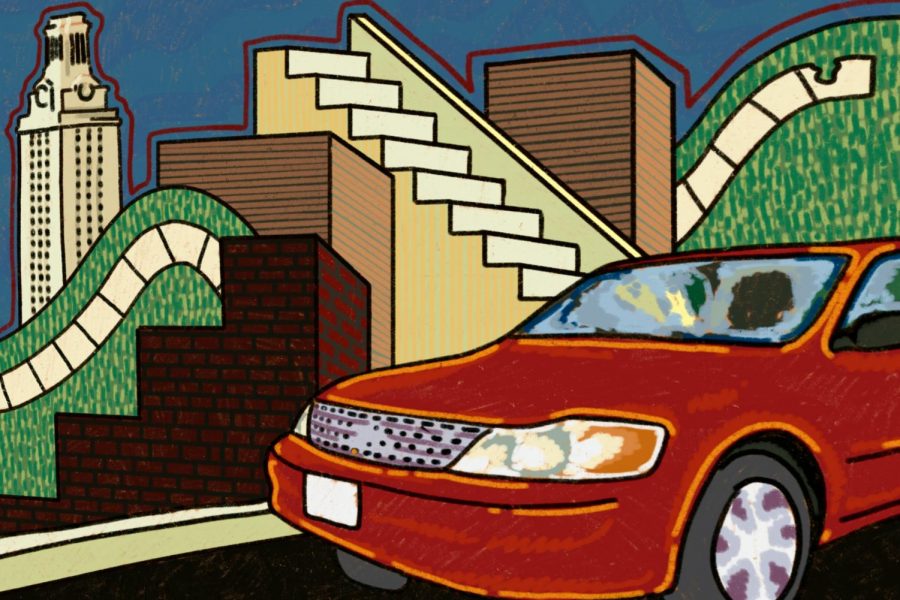Raise awareness about rideshare services for handicapped students
September 29, 2021
When I get ready to go from my apartment to my on-campus classes, I prepare like I’m not coming back until the end of the day. I can’t ever justify making the walk back to my apartment; the 20 minutes it takes to get from the engineering building to my apartment feel excruciating and take precious time out of the day. Most students can attest that the Austin heat doesn’t make things any easier.
Students that use crutches or wheelchairs often experience this worse than others. It’s obvious that UT’s campus was not designed for those with physical disabilities. Steep hills and mile-long walks between buildings greatly outnumber occasional ramps that lead to classrooms — only the bare minimum accommodation is given.
While there are already several handicap-accessible rideshare services available on campus, not many students are aware of them. UT needs to actively work to promote their accessible transportation services to inform as many students as possible of their availability.
The University has a variety of accessible resources available for students who need a ride, including SURE Walk, a night-ride service for students and wheelchair accessible cars. UT Night Rides’ partnership with Lyft offers a similar service. During the day, the UT Shuttle System provides on-demand response service from 7 a.m. to 11 p.m.
While the presence of so many great services is helpful, the lack of promotion prevents many students from taking advantage of them.
“I just didn’t really bother looking into (services for students with physical handicaps),” business sophomore Srikar Devulapalli said. “This whole thing’s been kind of a rush, and I’ve had a lot of things I’ve had to focus on and figure out (since coming to Austin).”
Srikar is not alone in either being too busy to look into services or unaware that they existed to begin with. The responsibility of seeking out accessibility, however, should not fall on students. Students, disabled or otherwise, need to know about the possibility of getting home easily and safely without having to work for it. The University’s support toward the student body’s well-being should not just be implicitly given, but actively promoted.
“(Parking and Transportation Services) is an auxiliary unit, which means they are a self-supporting unit that funds itself entirely, and therefore are not supported by tuition or public funds,” Blanca Gamez, associate director for Parking and Transportation, said in an email.
Operating under limited funds leaves little room for expanded services or getting the word out about current services. If offering direct financial support is not possible, then at the very least, UT should work to actively advertise already accessible rideshare options in order to reach as many students as possible.
The infrastructure for accessibility is already there. Students struggling across the hilly terrain of Dean Keeton Street in the blistering sun is something that shouldn’t be happening at this University.
Tariq is an electrical and computer engineering sophomore from Allen, Texas.












